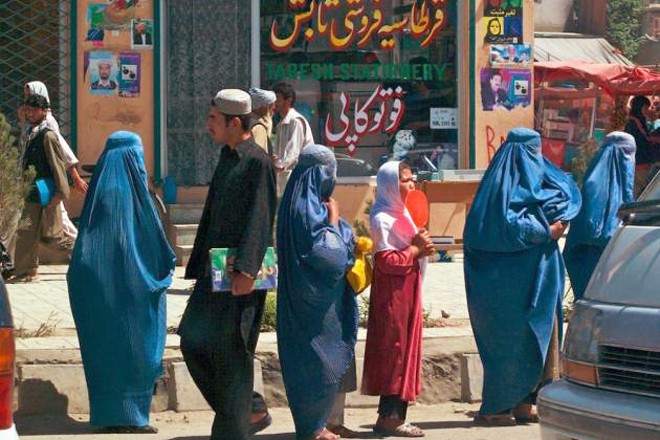
Where Pakistan is viewed as an enemy while India a friend

"Pakistan believes I am pro-India. Yes, I am and there are reasons for every Afghan to be pro-India." This is how Dr Abdullah Abdullah, Chief Executive Officer of the Afghanistan’s Unity Government begins his talks after formally greeting the Pakistani delegation of Afghanistan-Pakistan Track 1.5/2 Dialogue at his palatial office in the heart of Kabul.
For the visiting Pakistani delegates, Dr Abdullah’s comments were not unusual. Their interactions with senior media persons, members of civil society, cabinet ministers and political elites had made them realise that the only issue on which all Afghans are united is ‘hatred for Pakistan’.
Any Afghan you meet in Kabul will tell you -- "Pakistan is imposing Taliban on us".
But, personally, this unprecedented hike in anti-Pakistan sentiment among the Kabulis is quite alarming. This level of mistrust and hatred was never witnessed during the previous visits to Afghan capital.
Despite the negative sentiment for Pakistan, the delegates of Pakistan-Afghanistan Track 1.5/II peace initiative titled ‘Beyond Boundaries’, jointly organised by Islamabad-based Center for Research and Security Studies and the Kabul-based Durran Research & Analyses, were warmly received. The delegates met the former Afghan President Hamid Karzai, cabinet members, political leaders and Dr Abdullah.
"We have foreign guests… Pakistani diplomats," our liaison officer Taufiq tells security officials as we were stopped at a check post while entering the highly secured Wazir Akbar Khan locality.
"…And the Indian diplomats too," Taufiq hastily added. "Diplomathaani Hindi and Pakistani" in Dari when the check post guards further argued.
"Diplomathaani Hindi," the security guard quipped with a smile and let the car pass without further questioning.
"The reason is simple. Afghans believe India wants peace and development in Afghanistan," said Waheed Omar, an Afghan delegate who was a spokesman for the former president, Hamid Karzai.
The incident at the security post also confirmed what CEO Dr Abdullah claimed -- "Every Afghan is pro-India. India is giving respect to Afghans and promoting peace… People from India are coming to build roads, educational and health institutions and do not interfere in our affairs."
While further commenting on the popular perception in Pakistan that he is heading a pro-Indian lobby in Afghan capital, he said, "Those [Taliban] coming from Pakistan are killing innocent Afghans, imposing their ideologies and destabilising the legitimate Afghan government…"
Afghan President Dr Ashraf Ghani echoed the same sentiments while addressing the participants of the Heart of Asia Conference in Islamabad just days after our meeting with Dr Abdullah. "There had been considerable uncertainty whether Pakistan would truly acknowledge a sovereign Afghan state with its legitimate government and constitution," said Dr Ghani, while sharing the chair of the conference with Pakistan Prime Minister Nawaz Sharif.
No doubt, Pakistan has a fair share in the prolonged conflict and internecine wars in Afghanistan, but for any future peace initiative, Afghans have to own the problem first.
"By God there is no insurgency in Afghanistan. It’s all Pakistan’s doings… Afghanistan will be a peaceful state the day Pakistan stops sending Taliban," this is how a senior Afghan delegate and member of civil society network looks at the whole issue.
The new generation of mostly educated Afghans has a deep hatred for the militias. Some of them have bad memories of the puritanical regime and the atrocities they committed. "I was three years old when tortured along with my family by the beasts [Taliban]," said Omar Sharifi, a member of the Afghan delegation from Nangarhar.
"Selling a positive story about Pakistan on media is a difficult job," said Fahim Dashti, a senior journalist who chaired most of the sessions.
"We praise Pakistan for what? For sending terrorists, killing innocent Afghans and destabilising legitimate regimes?" he added. "And the Afghans feel that Pakistan is still working on the agenda of bringing Taliban to rule Kabul."
The other most important issue is the state of security in Kabul. The government offices, streets and market places in Kabul appear visibly troubled by an impending attack of Taliban militias.
"The state of Serena represents the state of Kabul," said Karren Pierce, Ambassador of the UK in Kabul while speaking at the opening ceremony of the peace initiative at the Serena Hotel in Kabul.
The streets of the war battered capital, lobbies and corridors of the lone five-star hotel were flooded with security guards with sophisticated weapons. Gone are the days when these lobbies and corridors bustled with European and American visitors accompanied by their Afghan interpreters.